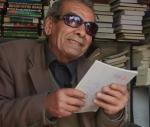You are here
Nusra, Daesh and Yarmouk
Apr 15,2015 - Last updated at Apr 15,2015
Ever since Al Qaeda’s Syrian branch, Jabhat Al Nusra, facilitated the entry of Daesh fighters into the Yarmouk suburb of Damascus, commentators have been asking why Nusra enabled Daesh fighters to overrun the area.
Daesh and Nusra have been fighting each other in northern Syria and around Raqqa, the north-central provincial capital transformed into Daesh headquarters.
The answer to this question could very well be Nusra’s alliance with Israel.
After two weeks of skirmishes in Yarmouk that weakened Palestinian groups based there, particularly Hamas-affiliate Aknaf Beit Al Maqdis, a rival of both Daesh and Nusra, the former withdrew and handed over control to Nusra, which over the past year has forged an alliance with Israel along the Golan Heights ceasefire line.
The muscle of Daesh was used by Nusra to eliminate the local branch of Hamas, Israel’s enemy, and discomfit Damascus.
UN peacekeepers minding the buffer zone between Syria and Israel have remarked on the close cooperation between Nusra and Israel.
This has been described at some length in an article by Asa Winstanley on the Middle East Monitor website, where she reports on Israeli efforts to cover up the arrest of Sedqi Al Maqet, a Syrian Druze living in the Israeli occupied Druze city of Majdal Shams, who had exposed details of the Israeli-Nusra connection through online postings.
Since Nusra has exercised its authority over about two-thirds of the Golan buffer zone and seized control over a main checkpoint, there have been no attacks against Israeli targets.
Wounded Nusra fighters have gone to Israel for treatment and returned to the battle against the Damascus government, which had maintained peace along this front since 1973.
Winstanley made the point in her article that if either Hizbollah or Hamas fighters were wounded in battles on this front, they would have been imprisoned by Israel after receiving medical aid.
According to blogger Richard Silverstein, “Israel has even established (Hebrew source) a Camp Ashraf-style Syrian rebel encampment just inside Israeli [occupied] territory on the border”.
Camp Ashraf was the headquarters of the anti-Iranian regime Iranian Mujahadeen-e-Khalq, which fought on Iraq’s side in the 1980-88 war between Iraq and Iran.
UN observers said that this camp consists of 300 tents for the families of Syrian army deserters. The Syrian army has, reportedly, warned that the camp could become a target in the battle for the Golan buffer zone area.
Silverstein observed that this camp could be a “huge red flag to Assad, indicating Israel was prepared to escalate its intervention [in the conflict beyond bombing] by permitting rebels to operate openly inside Israel and engaging in cross border sabotage-terror operations. Clearly, it’s in Israel’s interests to create maximum instability inside Syria in order to harm the interests not just of [President Bashar] Assad but his chief allies Iran and Hizbollah”.
How does this analysis apply to Yarmouk?
Yarmouk could be a much larger “red flag” to Assad as the Nusra-facilitated invasion and takeover of the township, located on the southern edge of the capital, by the Daesh-Nusra alliance poses a direct threat to Damascus.
The capital has been held and furiously defended by the government since the troubles began in 2011.
The government cannot permit Nusra, reinforced by Daesh and like-minded fundamentalist factions, to control Yarmouk, six to eight kilometres from the city centre.
Control of Yarmouk could give these groups, which also hold the adjacent district of Hajar Al Aswad, a large platform from which to attack the capital.
Consequently, Damascus asked the Palestine Liberation Organisation (PLO) to join the Syrian army in an offensive to secure Yarmouk.
Ahmed Majdalani, a PLO emissary, initially agreed, but Ramallah refused.
The PLO claimed this decision was based on its four-year policy of neutrality in the Syrian conflict, but West Bank sources claim that external powers — perhaps Israel on behalf of its ally, Nusra — put pressure on Ramallah to remain on the sidelines.
In any case, the PLO’s claim of “neutrality” is false because Palestinian neutrality was destroyed when renegade Palestinian militiamen belonging to the pro-government Popular Front-General Command, headed by Ahmad Jibril, handed over Yarmouk to Nusra, the rebel Free Syrian Army and other insurgent factions on December 16, 2012, prompting most of the inhabitants of the township to flee on December 17 and afterwards.
Palestinian friends who left on the 17th told this correspondent that many Yarmouk residents had hated Jibril until then, but the takeover made them realise that he, his forces and the elders of the Palestinian camp — not the PLO — had enforced Palestinian “neutrality” in the battle for Syria.
Although subservient to Damascus and corrupt, “Jibril’s fighters had protected the camp”, stated Sabah in a conversation in April 2013.
Fourteen factions, including Aknaf Beit Al Maqdis, which have been fighting each other, Nusra and government forces in Yarmouk over the past two years, proposed to join the government in its efforts to drive Daesh and Nusra out of the township.
Over the past year, government forces pushed insurgent groups out of key suburbs of the city, including in the southern region and the Eastern Ghouta, from which armed groups had lobbed mortars into the capital.
The army had also cleared the road to the international airport and lifted the threat to Sayyida Zeinab where the Shiite shrine of the granddaughter of the Prophet Mohammad is located.
The government also reasserted its presence in the Qalamoun mountains, on the border with Lebanon, and strengthened its control of 70 per cent of Aleppo.
The near simultaneous fall of Yarmouk to Daesh and of Idlib’s provincial capital to Nusra amounted to a double blow to the government’s campaign to reassert its control over strategic areas and undermines the limited and contradictory efforts of the US-led coalition to roll back Daesh in parts of Syria and western and northern Iraq.












